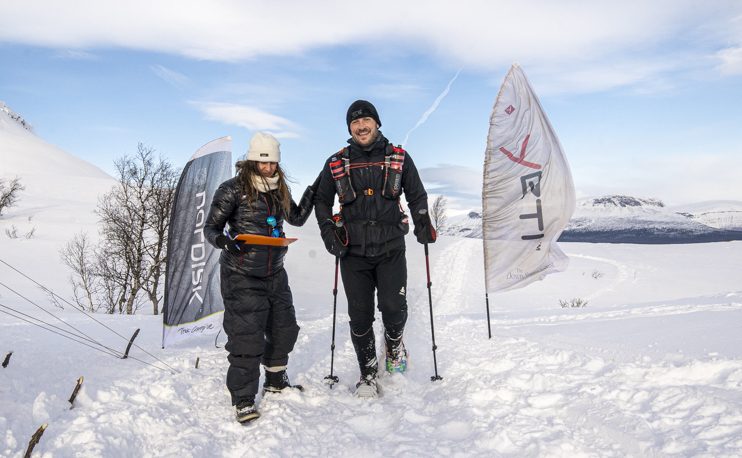A lawyer from West Kirby has just returned from completing a marathon. But this is no ordinary marathon. This is one of the toughest Ultra Marathons in the world – the Arctic Ultra marathon – a non-stop self-sufficient foot race over a distance of 120 miles crossing the Arctic circle and finishing at the Arctic Ocean.
Lee Quinn has just made it to the finish line, and he told Wirral Life what it was like.
How did you get into this?
It was something that I’d read about and talked about in the past and then you end up in the pub saying, ‘Hey why don’t we?’
I’m not even really a runner to be honest, my passion is more in hiking in the mountains, but I fancied a challenge. I’ve already completed the Marathon Des Sables (in the Sahara) in 2016 and the Amazon Jungle Ultra so this was the other extreme!
It’s also a positive motive as I wanted to inspire my daughter and show her that with a bit of hard work and dedication anything is possible.
How cold was it?
We were actually quite lucky! In years gone by, I believe it’s been minus 40 but we managed minus 20 in the day and about minus 30 at night. It sounds funny to say, but once you’re running you can fight off the cold. You’ve just got to be careful that your clothes don’t get too wet because when you slow down again and cool off there’s a chance of hypothermia which can take hold quite quickly.
I did have a frozen beard and frozen eyelashes although there’s measures, like wearing goggles for example, that you can take to minimise the effect.
How long was it?
Each day was a bit different. We run it over five days so day one is about 53km, day two was about 44km then day three was just over a marathon again. Day four was longer about 64km and we had a sprint finish on the last day of 15km.
I came 6th out of 40 runners and my friend Craig came 5th so we were pleased with how we did. We kept each other motivated and had a bit of banter.
What did you find difficult and what helped?
Each day had its own challenges. You need to carry everything with you for the week, so you have your clothes, your food, your medical kit and the only thing the team can give you at the checkpoints is water. The checkpoints really help though, on the first day where we did about 53km, there were five, so they are always on hand to check that you’re OK. There are doctors at the checkpoints too, who give up their free time and their holidays to come and get experience of working in harsh climates. They are amazing. They make sure you’re drinking and eating enough and that you’re coping with the conditions, so you feel like despite the extreme challenge of the marathon, your wellbeing is looked after.
The second day was the toughest for me as we were in the hills and the wind was up. If you took a glove off to have a drink of water or eat something, then it would only take seconds for you to start tingling with the cold.
I feel the company we went with are very good, they have a great ethos and you do feel incredibly privileged to get to spend time in these places, like the Arctic or the Amazon. For me, it’s not the running that I do it for. It’s seeing the places, meeting the people and doing something that’s a little bit out of the ordinary which is a positive challenge.
What did you run it for?
The first two events I took part in raised about £11k for neuroblastoma but this time I raised money for Rock2Recovery a charity founded by former two Royal Marines that helps servicemen/women who struggle when returning from service and try to support their situations.
A good friend of mine who I met on my first marathon was a former Royal Marine Commando and he was telling me how hard it was when he left the services so I just thought it would be a nice way to raise awareness of the issue for the people who give up so much for us and some money in the process.
What’s next for Lee?
I’m in the Alps in July, it’s called the Spaghetti Traverse. You hike eight four thousand metre peaks in five days and I’ve also got my name down for a mountain race in Japan next year, Japan’s always intrigued me so I’m looking forward to that.
I would say it’s got to be something that lights your fire because otherwise you’d never get through your fourth day of freeze-dried food or out of bed early to train – especially in the rain and the cold in winter!

